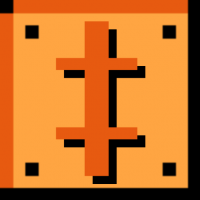Greetings, dear readers. From this blog, I will try to give definitions to various terms. It is sound, then, I think, to begin by defining what a definition is. Now, we encounter one of the hardest problems with this procedure: circularity. Since in order to define a term, which is a symbol, we will have to use other symbols, don't we have to define these as well? Likewise, shouldn't we then define the symbols we used to define the symbols we used to define the original term? This goes on ad infinitum.
So, we are forced to either stop defining or to end up doing circles, without an end in sight. Things aren't exactly like that, however. Now, I am imprinting my thoughts on a language, which is a symbolic means of communication. I am imprinting them and then publishing the results, fully expecting that when someone reads up to this point, he will have at least a partial understanding of my original thoughts. Is it senseless to expect that much? The answer to this question seems to be an obvious "no" but why exactly is that?
Humans have the ability to identify symbols in a non-symbolic way: with patterns. Our brains, which are neural networks, can learn to identify a stimulus if it is repeated enough times. Consequently, when a person is reading these words here, his mind understands and composes them, up to a point, producing an imprint of the original idea that existed in my mind. A neural network can execute this learning procedure to identify something -a symbol in this case- but because of the way it works, it is not capable of doing so with absolute accuracy. Now, the way we will get around circularity as well as what is the point in defining things start to become apparent.
A definition is a symbolic description of a term. A good definition needs to be absolute and formalistic. Why? Because that's what is missing from the way the human brain interprets symbols. If the learning procedure of the human brain was capable of identifying and processing symbols with absolute accuracy, then the need for symbolic definitions would cease to exist.
All in all, definitions are part of the symbolic representation of the world humans have in their minds. The role of these symbols is to enhance the human mental power by covering for the built-in weaknesses of the inner workings of their brains. To be more specific, definitions are that system that connects all those symbols. For this reason, I believe that studying and extensively using definitions is beneficial to humans.
So, we are forced to either stop defining or to end up doing circles, without an end in sight. Things aren't exactly like that, however. Now, I am imprinting my thoughts on a language, which is a symbolic means of communication. I am imprinting them and then publishing the results, fully expecting that when someone reads up to this point, he will have at least a partial understanding of my original thoughts. Is it senseless to expect that much? The answer to this question seems to be an obvious "no" but why exactly is that?
Humans have the ability to identify symbols in a non-symbolic way: with patterns. Our brains, which are neural networks, can learn to identify a stimulus if it is repeated enough times. Consequently, when a person is reading these words here, his mind understands and composes them, up to a point, producing an imprint of the original idea that existed in my mind. A neural network can execute this learning procedure to identify something -a symbol in this case- but because of the way it works, it is not capable of doing so with absolute accuracy. Now, the way we will get around circularity as well as what is the point in defining things start to become apparent.
A definition is a symbolic description of a term. A good definition needs to be absolute and formalistic. Why? Because that's what is missing from the way the human brain interprets symbols. If the learning procedure of the human brain was capable of identifying and processing symbols with absolute accuracy, then the need for symbolic definitions would cease to exist.
All in all, definitions are part of the symbolic representation of the world humans have in their minds. The role of these symbols is to enhance the human mental power by covering for the built-in weaknesses of the inner workings of their brains. To be more specific, definitions are that system that connects all those symbols. For this reason, I believe that studying and extensively using definitions is beneficial to humans.




